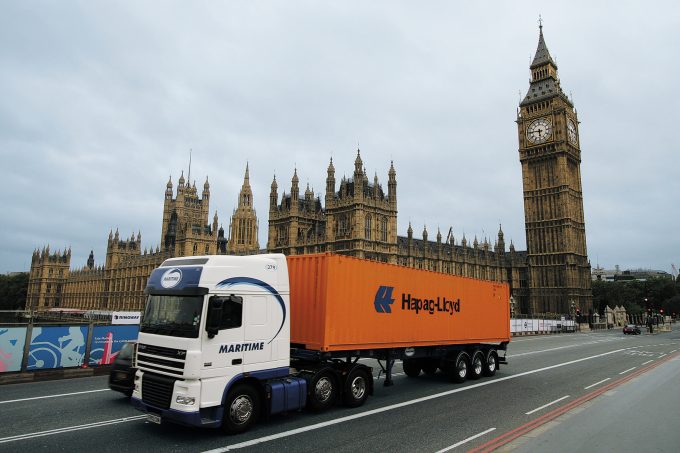UK pauses tariffs on 'everyday' items
Tariffs aren’t just a US thing. The UK – in a move which repudiates the ...

UK shippers have entered 2019 facing significantly higher inland container transport pricing, as shipping lines look to recoup raised haulage and empty container repositioning costs.
Sources told The Loadstar the cost of transporting a container from a deepsea gateway to the interior had risen 10-40%, with few opportunities to negotiate discounts.
“The price of a box going to the north-west of the UK from Felixstowe has gone up by about £200, and whereas rail used to be competitive versus road on price, ...
Maersk Air Cargo sees volumes fall as it aims for 'margin in favour of revenue'
Keep our news independent, by supporting The Loadstar
Container spot rates diverge: to Europe still falling, but firmer to the US
Hapag-Lloyd won't take bookings if port congestion leaves cargo stranded
Ecommerce likely the front-runner in resurge of transpacific trade after deal
Airfreight players eye new routes as demand on the transpacific nosedives
China-US trade tariff pause could drive a rebound for transpacific rates
Volume surge and an early peak season? 'Don't celebrate too soon,' warning
Service chaos from trade ban with India a problem for Pakistan shippers
Airfreight rates ex-China 'loss-making', but hopes of a trade deal stay high
Indian coastal freight attracts major carriers, but regional tension disrupts
Serious threat to jobs in US logistics as tariffs cause economic 'stagflation'
APMM floats along on 'solid' Q1 profitability in Ocean, well prepared for choppy water
White House u-turns see freighters flying but keep logistics players on their toes
Carriers impose 'emergency operation' surcharges on Pakistan cargo
MSC in terminal switch as Nhava Sheva gets strong start to new fiscal year


Comment on this article
Martyn Benson
January 08, 2019 at 9:34 pmWhy should the exporter pay £ 200 when the problem is caused by a surplus of imports?
Surely the exporters are part of the solution, not the problem so why burden them with penalty charges?
Boxes going from FLX to the north west by road or rail? Why don’t the importers use Liverpool as their port of discharge instead of patronising southern ports (re: Cargo200 from Peel Ports). From my own calculations on the US and canada trades, at least half the containers destined or originating the northern half of the country were running via FLX, LDN or SOU, where it would be cheaper to move through LPL, so whose fault is it that inland costs are rising and who is not checking the least cost alternatives?